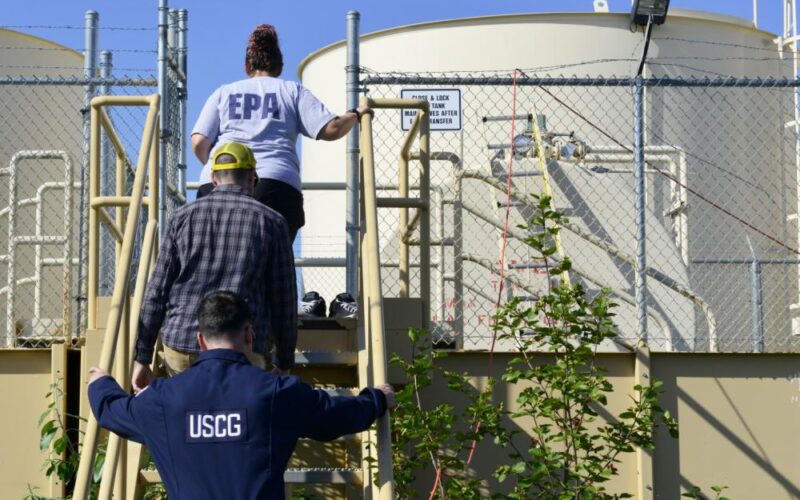05
Aug
Members of the U.S. Coast Guard Sector Anchorage’s Marine Safety Task Force returned to Anchorage in July after spending nine days inspecting facilities in the Northwest Arctic Borough. They teamed up with the Environmental Protection Agency to check two dozen bulk fuel storage facilities in 11 Alaskan communities, including Kotzebue, Kivalina, Noorvik, Selawik and Utqiagvik. “Fuel facilities are critical to the survival of these remote communities,” said Petty Officer 1st Class Christopher Houvener, a marine science technician and team lead. “They rely on fuel to heat their homes and schools during sub-freezing winter months,” he continued. “Many of these facilities…

